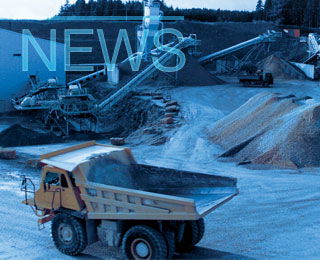Ten of the world’s largest cement and concrete companies, including Heidelberg Materials, CEMEX and Holcim, have joined architects, engineers and construction firms in a collective acknowledgement for action, known as Mission Possible Partnership (MPP). MPP has developed a new strategy with industry input that sets out milestones and commitments needed by government, industry and investors over the next 25 years to make net zero emissions in concrete and cement a reality. The strategy, ‘Making Net Zero Concrete and Cement Possible’, is the first strategy to be developed with the concrete and cement industry, anchored in granular economic modelling.
The strategy outlines three groups of levers that are vital to the cement and concrete sector reaching net zero greenhouse gas emissions and complying with the 1.5 degree target. The first of these is a 22 per cent emissions reduction on the demand side through efficiency improvements in construction and design, reducing the volume of concrete needed without compromising safety or durability.
The second is a 25 per cent reduction in process emissions on the supply side through the deployment of supplementary cementitious materials (SCMs) to lower the use of clinker, whilst also bringing alternative chemistries to a commercial stage. The third is the 53 per cent reduction, elimination or capture of emissions through a combination of fuel switching, power sector decarbonisation, or the use of carbon capture, utilisation and storage (CCUS).
According to the strategy, CCUS currently has the largest emissions saving potential of all available technologies. Between 33 and 45 new CCUS plants with an annual capacity of 80Mt of CO2 must be in operation by 2030 for the industry to stay within its carbon budget. However, new data from MPP’s tracking of green industrial projects – released by MPP for COP28 – shows that the current pipeline falls short, as projects struggle to reach final investment decision stage.
MPP CEO, Faustine Delasalle, says, “Our report sets out precisely what needs to happen to make zero carbon concrete and cement a reality, but time is not on our side. The moment to roll up our sleeves and work together across the value chain and with governments is now. Immediate collaboration and cooperation – from producers through design and construction – together with policymakers and finance – is essential to making the necessary progress this decade.”
